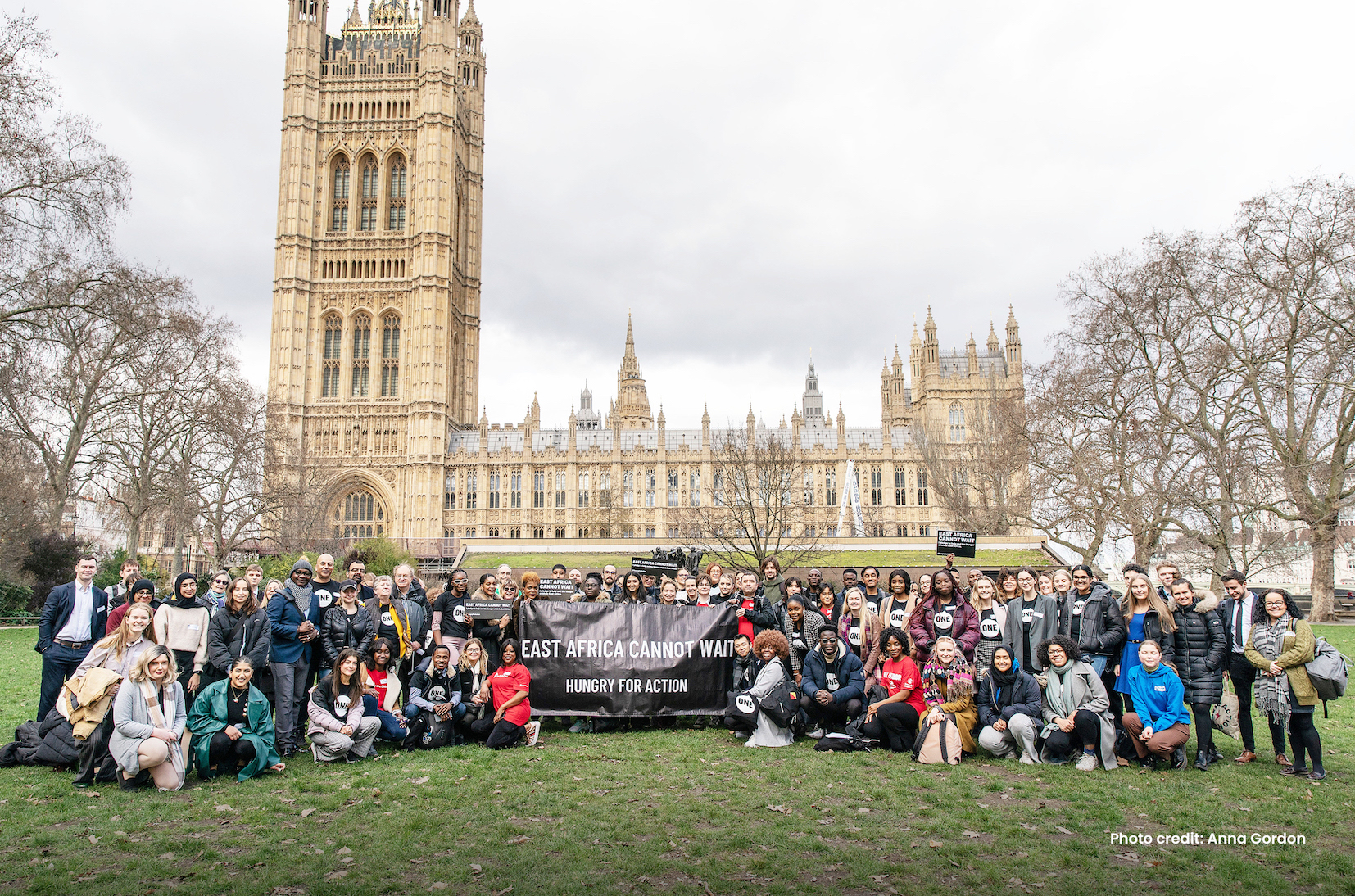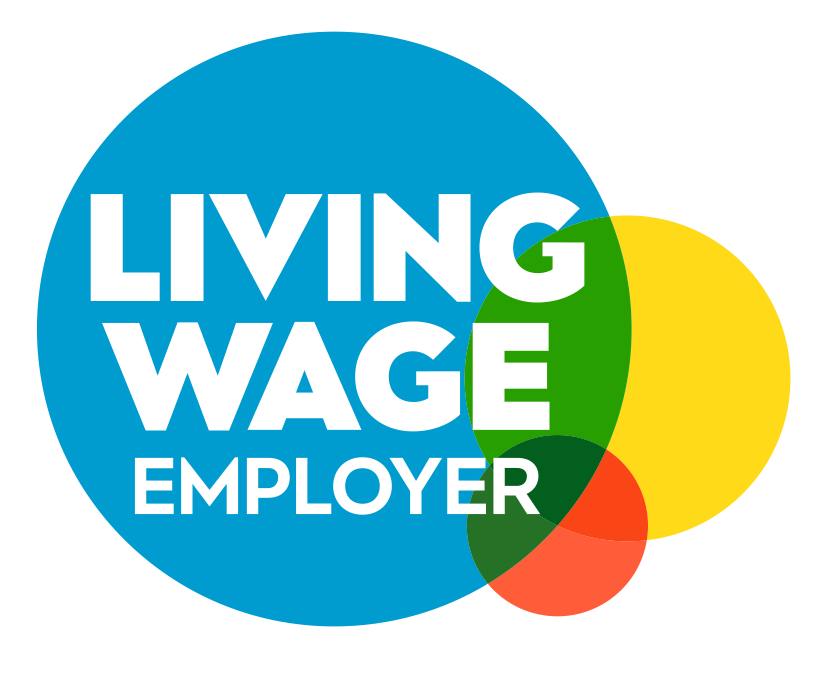In late February, Atalanta managed a major lobby day in the House of Commons to raise awareness of the hunger crisis currently engulfing Ethiopia, Kenya, and Somalia and encourage action by the UK to alleviate the suffering of communities across East Africa.
Lobby days are events in parliament, often planned by non-government organisations and advocacy groups, to meet and build relationships with MPs and policymakers on a particular subject or theme.
Over 100 campaigners met with 40 cross-party MPs, including Minister of State Andrew Mitchell MP, to build pressure on the Government to reverse funding cuts to UK aid and invest now to prevent future crises in the region.
Atalanta Senior Account Director, Billy Hill, shares five lessons on organising successful lobby days, including advice on how to ensure your work drives impact.
Put policy first
First and foremost, lobby days must get their policy asks right. While this may seem obvious, advocacy groups can fall into the trap of “raising awareness” of an issue without setting out concrete, actionable asks that MPs can take forward to drive change.
After five seasons of failed rains, combined with the impacts of conflict, climate change, and poverty, East Africa is facing its worst drought in more than forty years. According to Action Against Hunger, this has driven “50 million people towards starvation,” with the UK Government cutting back international aid funding to the region by 80% since 2017. Our asks for the lobby day focused on increasing aid funding for the current crisis and investing now to prevent future challenges. With Prime Minister Rishi Sunak and Chancellor Jeremy Hunt holding the pen on the budget, activists directly encouraged their MPs to write letters to Number 10 and the Treasury on funding and raise the issue in the Commons via parliamentary question sessions.
Build and mobilise effective coalitions
In total, 12 organisations joined the lobby day, including Oxfam, Save the Children, and ONE, bringing together a diverse collective of volunteers from all backgrounds—medical professionals from Belfast, priests from Essex, and diaspora campaigners from London (via Nigeria). MPs often complain that they hear from the “usual suspects” on issues, and that their mailboxes are full of constituents who sign petitions and forward template emails to their parliamentary email addresses.
In the digital age, we must not underestimate the power of face-to-face engagement. Research from nfpSynergy shows that less than half of MPs (41%) believe email campaigning is an effective way to engage with them. To attend the lobby day, activists often took the day off work, boarded an early morning train to London, and physically turned up in Westminster to make the impassioned case for action on this issue. Not a Zoom screen in sight. Of course, cross-sector collaboration poses logistical challenges. Yet, effective coalitions can outweigh the power of solo actors.
Secure cross-party support
In an increasingly polarised UK Parliament, bipartisan support for policy issues is becoming rare. Today's challenge for advocacy groups is to take the “party” politics out of issues and build unlikely coalitions to drive change.
We were delighted to engage over 40 MPs from six political parties for this lobby day. Our room sponsors, Vicky Ford MP, a former Minister under Liz Truss, and Hilary Benn, a former Minister under Tony Blair and Gordon Brown, used their experience to deliver energised speeches to a packed room on the need for action. FCDO Minister Andrew Mitchell MP, and his opposite number on the Labour benches, Preet Gill MP, also delivered remarks and took questions from volunteers eager to make their voices heard.
Combine the power of data with stories
On highly complex and sensitive issues, it is critical to ensure volunteers have the resources to fully understand the issue and the policy asks they are campaigning for. Indeed, expert speakers from Action Against Hunger, Save the Children, and Oxfam delivered excellent briefing sessions for the 100+ activists in the lead-up to, and during the lobby day, sharing insights from their humanitarian work on the ground and the urgent need for action.
Yet alongside this data-driven policy expertise, volunteers' stories and their passion often stay with MPs. The story behind that passion is as impactful as the statistics showing the need for, and pathways to, policy change.
Draw on the power of local media
Finally, engage with local media. It can be easy to forget the power of local media in the UK and the trust communities place in local papers. Research from Opinium and the Public Interest News Foundation finds that most British adults (58%) trust local media outlets based in their area. In contrast, less than a third (31%) trust outlets with no presence in the region.
Travelling to meet MPs in parliament is a great local media story. With MPs and their staff paying close attention to the stories covered in their local papers, it is also an effective advocacy tool. Putting resources into template press releases that activists can repurpose, training on how to effectively pitch stories, and, critically, great photography on the day, is a worthwhile investment. The ONE Campaign are particularly effective at local media engagement, and its activists secured strong coverage for their work. A great example is this story from Kehinde Odanye, who met with MPs, including the Shadow Foreign Secretary, David Lammy MP.
If you’re interested in learning more about grassroots advocacy, organising lobby days, or community organising, please reach out to the Atalanta team via our webform here.




